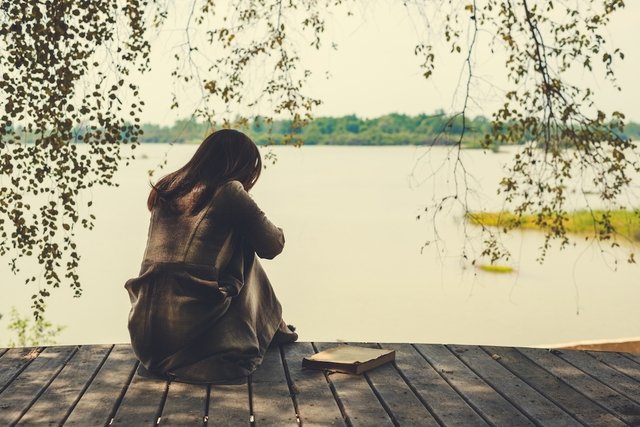Sexual abuse is any act that involves contact, touching or sexual conduct, without the consent of the other person, as in the case of rape, attempted rape, sexual caresses, sexual intercourse using emotional means and/or physical aggression, or when the aggressor exposes his sexual organ or performs masturbation in front of the victim, without consent.
Other characteristics of sexual abuse are when the victim either does not have the capacity to perceive the act as an attack, is a child and is not old enough to understand what is happening, or has a physical disability or mental illness, or the person is drunk or using drugs that make the victim not in their right mind and able to tell them to stop.
The main victims of this abuse are women, but homosexuals, teenagers, children and the elderly are also frequent victims of this type of crime.

Signs that help identify sexual abuse
The victim who has been sexually violated may not present any physical signs, however, the vast majority present the following signs and symptoms:
- Change in behavior as occurs when the person was very extroverted, and becomes very shy;
- Avoid social contact and prefer to be alone;
- Easy crying, sadness, loneliness, anguish and anxiety;
- When the victim is a child, they may even become ill or run away from contact with others;
- Swelling, redness, tears or fissures in private parts;
- Rupture of the hymen, in girls and women who had not yet had sexual contact;
- Loss of control of urine and feces due to emotional factors or weakness of the muscles in this region due to rape;
- Anal or vaginal itching, pain or discharge;
- Purple marks on the body and also on private parts;
- Symptoms of sexually transmitted diseases.
Furthermore, girls or women can become pregnant, in which case it is possible to legally resort to abortion, as long as a police report is filed proving the sexual abuse.
To prove the abuse and the right to abortion, the victim must go to the police and tell them what happened. As a rule, a woman should carefully observe the victim’s body looking for signs of aggression, rape, and it is necessary to carry out a specific examination to identify the presence of the aggressor’s secretions or sperm in the victim’s body.
It is best that the victim does not take a shower or wash the intimate area before going to the police station so that secretions, hair, hair or traces of nails that could serve as evidence to find and incriminate the attacker are not lost.
Helplines (where to call)
If you have suffered sexual abuse, witness or suspect sexual abuse, you should call one of the support lines, such as:
1. Support lines in Brazil
In Brazil, the main lines of support for sexual abuse are:
- Number 190: is the number of the Military Police, which can be contacted in cases of arrest or when sexual abuse is occurring at that moment;
- Number 181: is the support number to anonymously report sexual abuse;
- Number 180: is the number of the Women’s Assistance Center in Situations of Violence, that is, the Women’s Police Station.
The Women’s Police Station is the main police body in Brazil that was created to serve women, children and adolescents who are victims of sexual, physical and moral violence.
At the Women’s Police Station, incident reports are registered, investigations and investigations of crimes are carried out, in addition to requesting preventive measures provided for in the Maria da Penha Law and forwarding reports to the Legal Medical Institute (IML).
2. Helplines in Portugal
In Portugal, the main lines of support for sexual abuse are:
- Number 112: is the emergency number for the police or ambulance;
- Number 114: is the social support number, for all people who are unprotected or in a vulnerable situation, if it is not safe to return to their own home or have nowhere to stay;
- Number 800 202 148: is the helpline for victims of domestic violence.
In addition, there is also a helpline, number 116 006, for cases of violence against women, available throughout the European Union.
Forms of sexual abuse
Sexual abuse can occur in a variety of ways, and includes:
- Vaginal, anal or oral rape;
- Attempted rape;
- Sexual caresses, without the victim’s consent;
- Sexual relations using emotional means and/or physical aggression;
- Exposure of the sexual organ by the aggressor or masturbation in front of the victim;
- Rubbing the sexual organ against the victim’s body or over clothing;
- Touching the victim’s genitals, buttocks or breasts, over or under clothing;
- Convincing or forcing girls, boys and adolescents to touch the aggressor’s genitals;
- Orogenital contact between the aggressor and the victim;
- Introduction of objects or instruments into the victim’s vagina or anus;
- Forcing the victim to be naked or to show parts of their body;
- Ejaculate on the victim’s body;
- Observing or photographing children or adolescents while they carry out private activities, such as going to the bathroom, taking a shower, putting on or taking off their clothes.
In addition, other forms of sexual abuse are when a person forces another to caress their genitals, masturbate the aggressor or witness conversations with sexual content, watch sexual acts or obscene shows, films or takes photos of the victim naked to show to others .
How to deal with sexual abuse
To deal with the harmful consequences caused by sexual abuse, the victim of rape must be supported by the closest people they trust, such as family, relatives or friends, so that they can recover emotionally and within 48 hours they must go to the police station to register the complain about what happened. Following this step is very important so that the aggressor can be found and prosecuted, preventing the abuse from happening again to the same person or to others.
Initially, the raped person must be observed by a doctor to carry out tests that can identify injuries, STDs or possible pregnancy, and it may be necessary to use medication to treat these situations and also tranquilizers and antidepressants that can keep the victim calm so that they can recover.
Furthermore, the emotional trauma caused by abuse must be treated with the help of a psychologist or psychiatrist because the act leaves many roots of distrust, bitterness and other consequences that harm the person’s life in every way.
Physical and emotional consequences of rape
The victim always feels guilty for the rape and it is common to have feelings like ‘Why did I go out with him?’ or ‘Why did I flirt with that person or let them get close?’ However, despite society and the victim themselves feeling guilty, it is not their fault, but the aggressor’s.
After the act, the victim may have deep scars and it is common to have frequent and repetitive nightmares, low self-esteem, fears, phobias, mistrust, difficulty relating to other people, difficulty eating, and disorders such as anorexia or bulimia, greater tendency to use of drugs to escape reality and avoid suffering, suicide attempts, hyperactivity, aggressiveness, low academic performance, compulsive masturbation that can even hurt the genitals, antisocial behavior, hypochondriasis, depression, difficulty expressing one’s feelings and to relate to parents, siblings, children and friends.
How to deal with the trauma caused by rape
The victim must be supported by family and friends and must not attend school or work, being away from these tasks until they recover physically and emotionally.
In the first phase of recovery, with the help of a psychologist, the victim must be encouraged to recognize their feelings and the consequences of the rape, which could be living with AIDS or an unwanted pregnancy, for example.
Two other strategies for dealing with the consequences of sexual rape are:
Remedies to calm down and sleep better
The use of tranquilizers and antidepressants such as Alprazolam and Fluoxetine may be recommended by the doctor or psychiatrist to be used for a few months so that the person remains calm and can sleep with restful sleep. These medications can be used for long periods until the person feels better and keeps their emotions under control even without them.
See natural solutions to calm down in 7 tips for controlling anxiety and nervousness.
Techniques to increase self-esteem
The psychologist may recommend the use of certain techniques such as seeing yourself and talking to a mirror, saying compliments and words of affirmation and support so that this helps to overcome the trauma. In addition, other techniques can be used to increase self-esteem and psychotherapeutic treatments so that the victim can fully recover, although this is a lengthy process that can take decades to achieve.
What leads to sexual abuse
It can be difficult to try to understand what is going on in the perpetrator’s mind, but sexual abuse can be caused by a psychological breakdown and other factors such as:
- Trauma or injury to the anterior region of the brain, an area that controls sexual impulses;
- Use of drugs that damage the brain and bring out sexual and aggressive impulses, in addition to impeding the ability to make morally correct decisions;
- Mental illnesses that cause the aggressor not to see the act as abuse, nor to feel guilt for the acts committed;
- Having already been a victim of sexual abuse throughout my life and having a confusing sex life, far from normality.
However, it is important to emphasize that none of these factors justify such aggression and any aggressor must be penalized.
In Brazil, the aggressor can be arrested if it is proven that he is the perpetrator of the abuse, but in other countries and cultures the penalties range from stoning, castration and death. Currently, there are bills that attempt to increase the penalty for aggressors, increasing prison time and also the implementation of chemical castration, which consists of the use of medications that drastically reduce testosterone, preventing erection, which makes sexual intercourse impossible. over a period of up to 15 years.

Sign up for our newsletter and stay up to date with exclusive news
that can transform your routine!
Warning: Undefined array key "title" in /home/storelat/public_html/wp-content/plugins/link-whisper-premium/templates/frontend/related-posts.php on line 12
Warning: Undefined array key "title_tag" in /home/storelat/public_html/wp-content/plugins/link-whisper-premium/templates/frontend/related-posts.php on line 13



